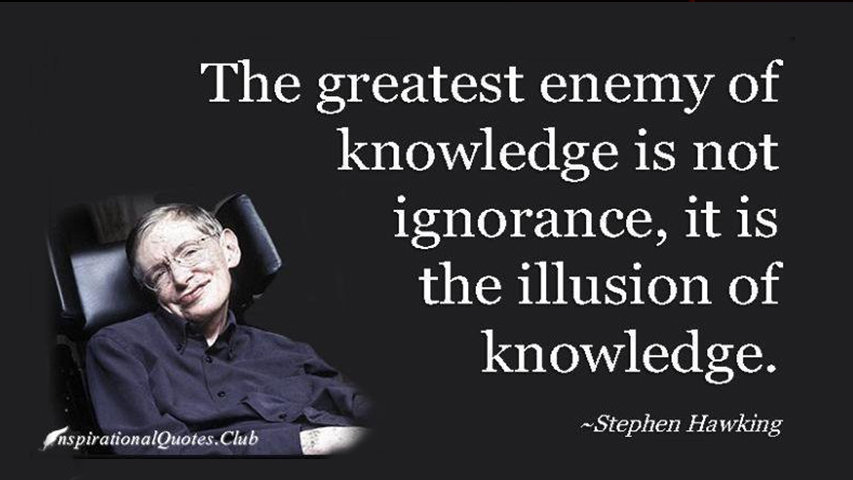
Why Human Mind refuses to believe Facts
by Shruthi Venkatesh May 3 2018, 8:40 pm Estimated Reading Time: 3 mins, 15 secs'The mind' most often refers to the seat of human consciousness. The theory is simple. It has the ability to not only understand that people have different beliefs, motivations, knowledge and moods but also understand how that affects their actions and behaviour as well as our own. But most of them refuse to do so. There is a serious setback on peoples’ way of thinking. They are just concerned about winning arguments and not thinking straight.
In 1975, researchers at Stanford invited a group of undergraduates to take part in a study about suicide. They were presented with pairs of suicide notes. In each pair, one note had been composed by a random individual, the other by a person who had subsequently taken his own life. The students were then asked to distinguish between the genuine notes and the fake ones. Some students discovered it as a piece of cake. Others discovered that they were hopeless. The results were appalling though half the notes were indeed genuine. The students who’d been told they were almost always right were-on average than those who had been told they were mostly wrong. The researchers believed- even after the evidence, people fail to make appropriate adaptations in such aspect.

hawking-quote
Steven Sloman, a professor at Brown, and Philip Fernbach, a professor at the University of Colorado, are cognitive scientists. They believe sociability is the key to how the human mind functions or, perhaps more pertinently, malfunctions. We can find that in their work ‘The Knowledge Illusion- Why we never think alone’. Here, they take toilets as a key factor. In a study conducted at Yale, graduate students were asked to rate their understanding of everyday devices, including toilets, zippers, and cylinder locks. They were then asked to write detailed, step-by-step explanations of how the devices work, and to rate their understanding again. Apparently, the effort revealed to the students that their own ignorance, being a cause for their poor self- assessments. Through this study researchers believed that- People believe that they know way more than they actually do. We’ve been relying on one another’s expertise ever since we figured out how to hunt together, which was probably a key development in our evolutionary history. Sloman and Fernbach argue, that we can hardly tell where our own understanding ends and others’ begins. They state that “there’s no sharp boundary between one person’s ideas and knowledge” and “those of other members” of the group. As people invented new tools for new ways of living, they simultaneously created new realms of ignorance.
In “Denying to the Grave: Why We Ignore the Facts That Will Save Us”, Jack Gorman, a psychiatrist, and his daughter, Sara Gorman, a public-health specialist, probe the gap between what science tells us and what we tell ourselves. Their consistence is with those persistent beliefs- vaccines. The Gormans believe ‘Immunisation is one of the triumph of modern medicine’. They refuse to change even if they are wrong. They further try to convince people that vaccines are good for children and hand-guns are dangerous. The Gormans feels that even when we provide accurate information to people, they simply overlook the facts. They conclude by stating: ‘The challenge that remains is to figure out how to address the tendencies that lead to false scientific belief.”
The entire country has been given over to a vast psychological experiment. Even today, rational agents or logical thinkers will find their way to solution but it seems tough to pave a way in the field of literature.
The above article was referred from one of the works written by Elizabeth Kolbert. Since 1999, she has been a staff-writer for The New Yorker where she secured good recognition in the following years.





-173X130.jpg)
-173X130.jpg)

-173X130.jpg)


-173X130.jpg)